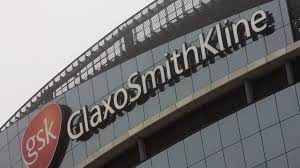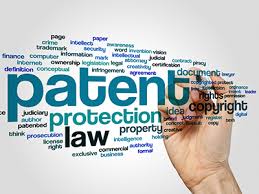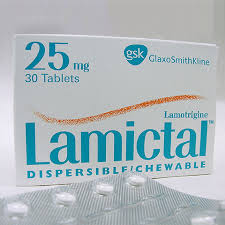Super Moon Coincides with Low Tide for Hatch-Waxman Patent Disputes
 Jacqui Merrill, an Associate at The Volkov Law Group, joins us again for a posting on Hatch-Waxman and antitrust risks. Jacqui can be reached at [email protected].
Jacqui Merrill, an Associate at The Volkov Law Group, joins us again for a posting on Hatch-Waxman and antitrust risks. Jacqui can be reached at [email protected].
This week, the U.S. Supreme Court denied a petition for writ of certiorari in a case that will give pharmaceutical companies pause when considering whether to settle patent challenges under Hatch-Waxman. The Supreme Court’s action let stand a Third Circuit decision holding that a settlement between GlaxoSmithKline (“GSK”) and Teva Pharmaceutical Industries Ltd. (“Teva”)—through which GSK compensated Teva by agreeing not to launch its own authorized generic during Teva’s exclusivity window—raises antitrust scrutiny, even in the absence of a cash payment between the parties.
By way of background, Hatch-Waxman strikes a balance between promoting pharmaceutical innovation and increasing competition through the entry of generic competitors in the marketplace. The statute allows generic companies seeking FDA approval to rely on the comprehensive clinical trials performed by the original manufacturer, requiring only that generic pharmaceutical companies conduct relatively simple bioequivalence studies.
In addition, Hatch-Waxman establishes special procedures for resolving related patent disputes. Manufacturer’s brand-name drugs are often covered by one or more patents and must identify any existing patent that could reasonably be asserted against a competing manufacturer. In turn, a generic company must assure the FDA that the generic will not infringe the original manufacturer’s patents, and one way to do so is by certifying that a patent identified by the manufacturer is invalid or will not be infringed by the manufacture, sale, or use of the proposed generic. This “paragraph IV certification” typically triggers the original manufacturer to bring an infringement suit.
If the manufacturer sues within 45 days of the paragraph IV certification, the FDA must withhold approval of the generic drug for up to 30 months while the parties litigate the validity and scope of the patent. If the courts decide the matter within that period, the FDA abides by the decision; however, if they do not, the FDA may go forward and give approval to market the generic product.
In order to encourage challenges to invalid patents and overbroad assertions of patent rights, Hatch-Waxman incentivizes a generic to be the first to file for paragraph IV certification by establishing a 180-day exclusivity period during which the FDA is not permitted to approve any additional generic applications. Because the brand-name manufacturer already has FDA approval, the first-filer’s 180-day exclusivity period does not prevent that manufacturer from marketing its own “authorized generic” version of the drug (selling the drug in generic packaging and at generic prices). As one might guess, the above-described process, which can be painfully slow particularly for the fast-paced land of pharma, lends itself to settlement.
Exhibit 1: GSK and Teva. In 2013, GSK developed Lamictal, a drug that treats epilepsy and bipolar disorder. Teva challenged the validity and enforceability of GSK’s patents on lamotrigine, Lamictal’s active ingredient, and was the first to file an application with the FDA seeking approval to produce generic lamotrigine tablets and chewable tablets.
If the patent suit had resulted in a judicial determination of invalidity or nonenforceability—or a settlement incorporating such terms—Teva would be statutorily entitled to a 180-day period of market exclusivity, during which time only Teva and GSK could produce authorized generic lamotrigine tablets. GSK and Teva ended up settling and agreed that Teva would end its challenge to GSK’s patent in exchange for early entry into the lucrative ($50 million annually) lamotrigine chewables market and GSK’s commitment not to produce its own, authorized generic version of Lamictal tablets for the market (alleged to be worth $2 billion annually).
The Supreme Court previously held in FTC v. Activis Inc., 133 S. Ct. 2223 (2013) (“Activis”), that unexplained large payments from the holder of a patent on a drug to an alleged infringer to settle litigation of the validity or infringement of the patent (“reverse payment”) could face antitrust scrutiny. In doing so, the Court rejected the near-irrebuttable presumption, known as the “scope of the patent” test, that a patentee/manufacturer can make such reverse payments so long as it is paying potential competitors not to challenge its patent within the patent’s lifetime.
In an antitrust class action suit, direct purchasers challenged the settlement between GSK and Teva under sections 1 and 2 of the Sherman Act. They contended that such a “no-AG agreement”—in which the patentee drug manufacturer agrees to relinquish its right to produce an authorized generic of the drug to compete with a first-filing generic’s drug during the generic’s statutorily guaranteed 180 days of market exclusivity under the Hatch-Waxman Act —qualifies as a “reverse payment” under Actavis. According to the plaintiffs, like the reverse payments, GSK’s no-AG agreement was designed to induce Teva to abandon the patent fight and thereby agree to eliminate the risk of competition in the $2 billion lamotrigine market.
Although the District Court of New Jersey originally dismissed the case, the Third Circuit reversed last June, finding that an agreement to not launch may be of substantial monetary value to the generic company. In turn, the court concluded that an agreement not to launch generic could present the same type of problem as a reverse payment of cash and could support an antitrust suit.
 GSK and Teva filed for Supreme Court review in February of this year, arguing that the agreement is merely a form of exclusive license expressly contemplated by patent laws and seeking clarification regarding what kinds of settlements can be scrutinized under antitrust precedent. In response, the Supreme Court requested that the U.S. Solicitor General provide the government position on the issue. In October, Acting Solicitor General Ian Gershengorn stated in a brief that the Third Circuit decision was correct because such agreements share many features with settlements that involve reverse payments and can have “significant adverse effects on competition.”
GSK and Teva filed for Supreme Court review in February of this year, arguing that the agreement is merely a form of exclusive license expressly contemplated by patent laws and seeking clarification regarding what kinds of settlements can be scrutinized under antitrust precedent. In response, the Supreme Court requested that the U.S. Solicitor General provide the government position on the issue. In October, Acting Solicitor General Ian Gershengorn stated in a brief that the Third Circuit decision was correct because such agreements share many features with settlements that involve reverse payments and can have “significant adverse effects on competition.”
The Supreme Court followed the Solicitor General’s advice and denied the petition for review, and the case will now be remanded to District Court in New Jersey. The Third Circuit is the only circuit to have addressed whether such an agreement warrants antitrust scrutiny at this point. This leaves a murky situation for companies who face patent challenges under Hatch-Waxman and may open the floodgates for antitrust challenges down the road.
















2 Responses
[…] Read Full Article: Super Moon Coincides with Low Tide for Hatch-Waxman Patent Disputes – Corruption, Crime & … […]
[…] Read Full Article: Super Moon Coincides with Low Tide for Hatch-Waxman Patent Disputes – Corruption, Crime & … […]